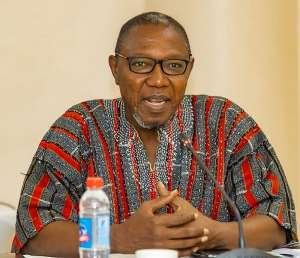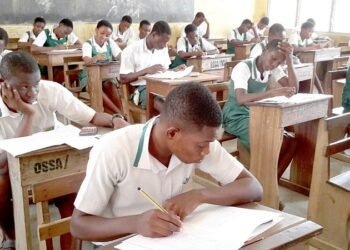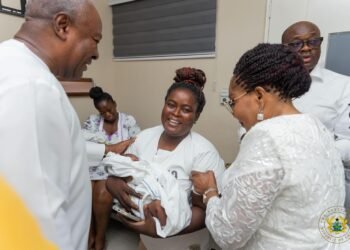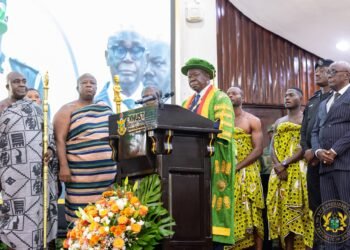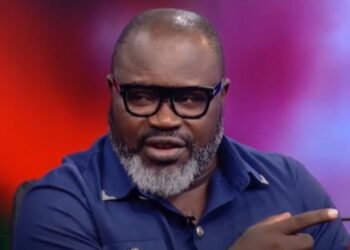The Deputy Minister of Education, Dr. Clement Apaak, has clarified that the compulsory use of Ghanaian languages as a medium of instruction applies only to the lower primary level – Kindergarten to Primary Three – and not to all stages of basic education as initially interpreted by sections of the public.
The clarification follows reactions that trailed Education Minister Hon. Haruna Iddrisu’s announcement last Friday, October 24, 2025, at the launch of the Free Tertiary Education Programme for Persons with Disability at the University of Professional Studies, Accra (UPSA).
The Minister had declared the use of mother tongue instruction compulsory in Ghanaian schools as part of President John Dramani Mahama’s education reform agenda aimed at strengthening foundational literacy and learning outcomes across the country.
“The Honourable Minister for Education, Hon. Haruna Iddrisu, has asked me to clarify that the policy directive he announced on Friday regarding the compulsory use of mother tongue as a medium of instruction in our public basic schools is confined, emphasis on confined, from KG up to Primary Three”
Dr. Clement Apaak, Deputy Minister of Education
Dr. Apaak clarified the scope of the policy during the launch of the Foundational Learning Action Tracker at the Accra College of Education, emphasising that the directive announced by the Education Minister was limited strictly to Kindergarten through lower Primary.

According to the Deputy Minister of Education, the new directive seeks to improve early grade reading and comprehension by encouraging the use of familiar local languages in early learning. However, public misunderstanding of the scope of the policy led to widespread debate about its applicability across all grade levels.
The Deputy Minister added that the clarification was therefore necessary to ensure smooth implementation and avoid confusion that could disrupt classroom instruction. He noted that the Ministry remained committed to supporting teachers and schools with the necessary resources for effective delivery of the language policy.
Education Reform Agenda
Dr. Apaak explained that the initiative forms part of the government’s broader education reform agenda, which focuses on improving foundational literacy, numeracy, and language development among early learners.
According to the Deputy Minister, the reforms seek to realign teaching practices with evidence-based strategies that prioritize the use of familiar languages during the formative years of learning.
Dr. Apaak said the language policy will be supported by teacher training, curriculum adjustments, and monitoring mechanisms through the Ghana Education Service (GES) to ensure full compliance within the approved scope.
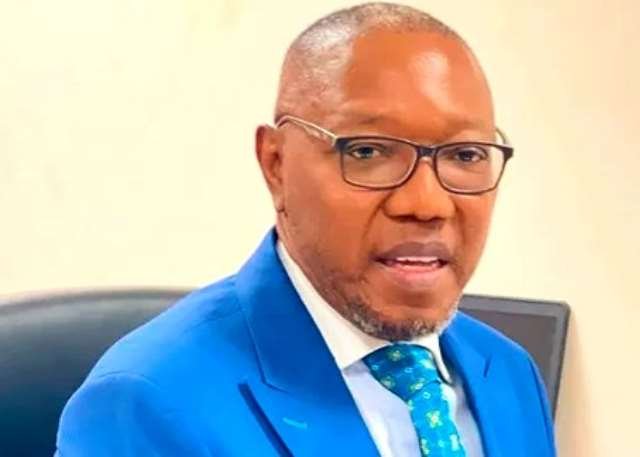
At the UPSA event, Education Minister Hon. Haruna Iddrisu said the measure forms part of efforts to promote inclusivity and strengthen educational outcomes at the foundational level.
“I am directing the Director-General of the GES and the GES that from today, teacher use of mother tongue instruction is now compulsory in all Ghanaian schools. The GES is to ensure strict enforcement of this”
Hon. Haruna Iddrisu, Education Minister
He further noted that the use of Ghanaian languages in early education enhances comprehension, confidence, and participation among young learners, particularly in rural and underserved areas.
The Deputy Minister of Education assured stakeholders during his clarification that implementation of the directive will be done in collaboration with the Ghana Education Service, teacher unions, and language experts. He reaffirmed that Ghanaian languages will remain central to early childhood education while English continues as the medium of instruction beyond Primary Three.
“This clarification is intended to ensure smooth implementation of the language policy and prevent misinterpretations that could affect teaching and learning across different grade levels”
Dr. Clement Apaak, Deputy Minister of Education

Dr. Apaak reiterated the Ministry’s commitment to President John Dramani Mahama’s education vision, which aims to build a literate, inclusive, and skilled generation through quality foundational education.
READ ALSO: “From GaoGao to No.1” – StarOil CEO touts Company’s progress

